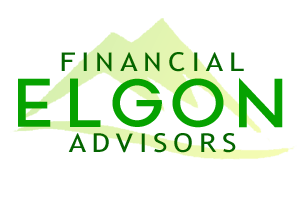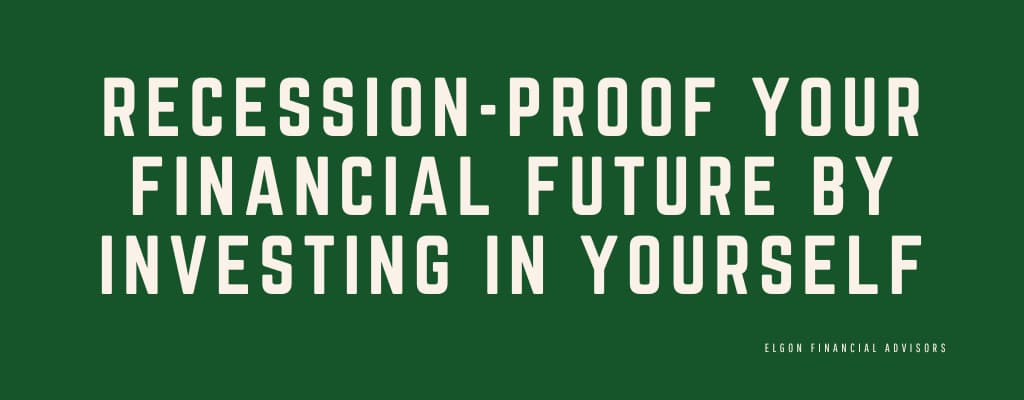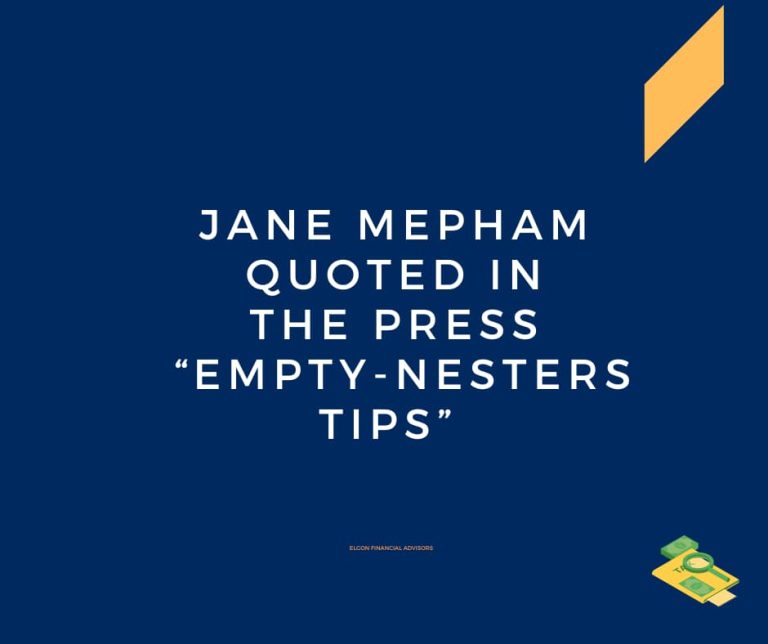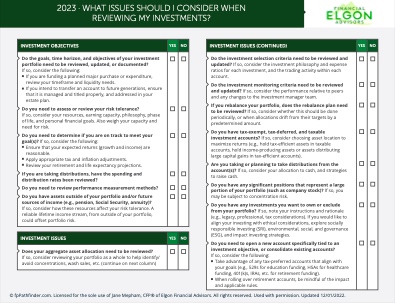You’ve read hundreds of articles this year on ways to recession-proof your financial future. The ideas range from establishing a big emergency fund to paying down debt to diversifying your portfolio to avoiding critical investment mistakes.
All excellent advice that should work for a lot of people but I’m not sure it will do the job permanently.
Invest In Yourself – Improve Your Financial Future
Instead, I’m going to propose investing in yourself as a way to recession-proof your financial future and possibly your whole retirement.
Warren Buffet once said, “The best investment you can make is in yourself.”
It’s the whole idea of improving your human capital for higher future productivity, and it’s something I encourage people to consider every day. Yes, you need to save for retirement and all the other things you hope to do in the future, but you should also focus on improving yourself for a higher return in the future.
We all have a chance to improve our human capital, and nobody, including a bad market, can take that away.
Human Capital
Investopedia defines human capital as the economic value of a worker’s experience and skills. (1)
The same article continues to describe this as including things like education, training, intelligence, skills, and other aspects valued by employers.
Nobel prize winners and economists Gary Becker and Theodore Schultz differentiated between general and specific human capital. (2)
General Human Capital
This is training or education that benefits only the individual at any company, versus that which is specific to one company.
You have an opportunity to improve your general human capital by taking specific training, taking part in different experiences, becoming more self-disciplined, and hanging out with people that will influence you positively.
Some of this will cost money, which you could invest in the market instead.
This brings to mind something I once heard Michael Kitces of the famous Nerd Eye View Blog (3) discuss very eloquently on a podcast. It’s the idea of improving yourself in a way that pays off long-term versus putting that money in the market.
Here is a great example:
John is 25 years old. He has $6,000 that he can put into his Roth account this year. Over 10 years at a standard 6% growth rate, this will grow to about $9,000.
Let’s consider another option–John goes back to school and completes a 6-month programming certificate program he’s been eyeing.
The new technical skills learned from the program allow him to move to the next job level, giving him a pay increase of 10% instead of the predicted 2022 increase of 3.4%.
It comes down to weighing the long-term compounding effect of spending money on yourself versus investing it in the market.
John has lost the opportunity of the 6% growth rate, but he’s gained a higher income and, in the future, his raises (assuming he stays in that job) will be based on a higher base salary.
It’s also possible that he’s gained new skill sets that make him more valuable to the company than the guy next door. It’s an open secret that companies will retain employees who bring more to the table when it comes to skills.
Create an emergency fund: Ideally six months’ worth of reserves. If you are foreign-born, with overseas family you may need to see on an emergency basis, your fund should include return tickets for you and your whole family in the US.
Take an honest assessment of your skill sets and identify gaps. There are a couple of ways to do this:
If employed, check in with your manager and find out what skill set you need to move to the next level.
Look at job postings to figure out skills in demand and chat with others in the industry for an inside look.
Figure out what soft skills (4) you need, not only to succeed at your job but to move to the next level or the next job (maybe at a different company). Be willing to take feedback on this.
3. Identify the best experience and the cost to give you the skill set you need.
There are endless ways of gaining new skill sets. A few that come to mind are formal classes, travel experiences, starting new side hustles, etc. Figure out what will give you the skills you need and do the math.
It’s also important to figure out the opportunity cost of not investing this money in the market, for it to make mathematical sense.
For this exercise, I’m limiting the investment to about $6,000 per year, which is the current Roth IRA max contribution in 2022.
4. Go get your training.
If you follow these steps over a couple of years being organized and intentional, you have a chance to recession-proof your financial future.
Originally published in Retirement Daily
Need Help?
Investing in yourself is a great step on the path to financial freedom. We are here to assist you in any way we can. Click here if you’d like to set up a meeting and chat on the above topic or any other financial issues that affect your ability to pursue your American dream.
To stay on top of Elgon’s blog posts by email, please sign up here.
Sources
(1) https://www.investopedia.com/terms/h/humancapital.asp
(2) https://www.thebalance.com/human-capital-definition-examples-impact-4173516
(3) https://www.kitces.com/
(4) https://www.thebalancecareers.com/list-of-soft-skills-2063770
Disclaimer: This article is provided for general information and illustration purposes only. Nothing contained in the material constitutes tax advice, a recommendation for the purchase or sale of any security, investment advisory services, or legal advice. I encourage you to consult a financial planner, accountant, and/or legal counsel for advice specific to your situation. Reproduction of this material is prohibited without written permission from Jane Mepham and all rights are reserved. Read the full disclaimer here.






